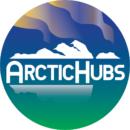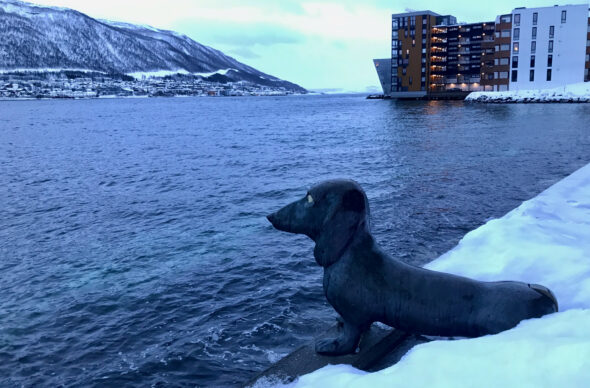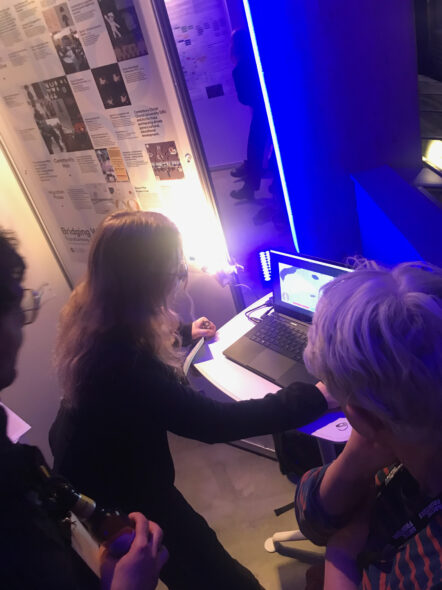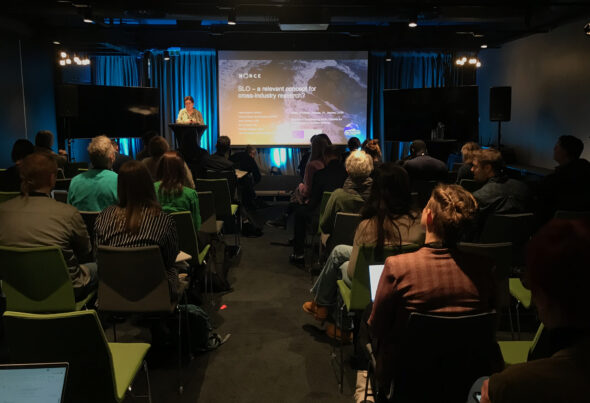Despite significant travel disruptions due to the wild and windy welcome to Tromsø from storm Ingunn, the ArcticHubs project still contributed a strong presence at the 2024 edition of the annual gathering for Arctic Frontiers.
The week for ArcticHubs began at the lively inter-disciplinary poster session, where the evolving digital game was presented in poster form. To allow curious attendees an opportunity to play a test version of the game online, we also had it set up on a laptop to navigate. This generated a lot of interest and alongside other posters in the session highlighted the increasing interest and opportunities opening around the broad topic of ‘serious games’ as an interactive research tool.
Moving into the science sessions, ArcticHubs research was centred around the session titled ‘Empowering Arctic Citizens for Involvement in Decision-Making’. Here we were able to seize the opportunity to further exchange experiences and share ideas built in utilising participatory tools, that have been shared with local communities around our European Arctic hub sites.
The session was divided up into three segments delivered at different points in the week. The first provided a chance for two early career researchers from our project to present on the suite of tools that have been applied and shared with different hub stakeholders. Jerbelle Elomena from BOKU, explained how they had been exploring local people’s perspectives on Arctic development using Q-Method. Whilst Helge Flick, based at NORCE provided an outline on the ArcticHubs experiences in applying the DPSIR framework across our hubs in the Nordic Arctic.
Later that day in part two of the session, Seija Tuulentie presented how we have been involving local communities in tourism planning. More specifically how the research teams have been utilising and adapting Public Participation GIS (PPGIS) as a tool for examining perspectives concerning the development of tourist resorts in the Arctic. Have a closer look at how our research teams have been utilising the PPGIS tool called Maptionnaire, through this link
Finally, our colleagues Rannveig ÓLAFSDÓTTIR and Vigdis NYDAARD opened up discussion around the use of social licence to operate (SLO) as a research tool. Vigdis explained how SLO has emerged from the mining sector and introduced the ways in which ArcticHubs have been considering if it may be a relevant concept for cross-industry research? Then Rannveig, provided findings from the case of Arctic cruise tourism in Iceland, Greenland and the Faroe Islands. Specifically, whether SLO might be used as a pathway to bring together the diverse experiences and perspectives that emerge through the rapidly increasing numbers of cruise ships arriving in Arctic destinations including some of our Arctic hubs.
Thanks to a helpful format across the session, that kept presentations to a tight schedule, but allowed debate to flow around lively discussions, the conference for ArcticHubs was busy but highly productive. This created a great space for ArcticHubs research to be shared and interacted with!



